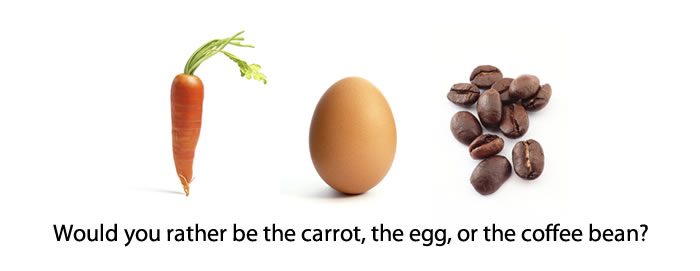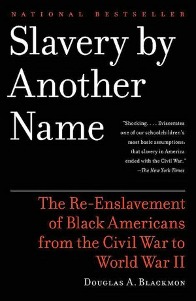What measures the intricate inner workings of lovers in love, as well as lovers that stray, and dares to suggest that we are a lot less in control of love than we may think. You’ll see what can transform the ecstasy of love into a cocaine-like addiction and you’ll learn what draws men to women and whether a “family guy” or a “hunky action hero” is more of a natural match.
If you ever wondered what it is that makes men go ga-ga over female curves, or why women swoon over a masculine face, National Geographic has come up with the series to examine the science of love. That doyen of documentary-makers has upped the ante to give the low-down on love, tracking what it is that make men and women attracted to each other.
Sniff out a potential mate? Look out for signs of the perfect one? You will be surprised to find out your physical senses are very much involved in tracking down your significant other. This may help to explain why some people “click” from the first moment of attraction, and what helps them to decide to bond with that special man or woman to settle down and raise a family.
Suddenly, the phrase “love at first sight” takes on a whole new meaning. In the series, the game of attraction is examined with a scientific eye. Researchers with impressive-sounding resumes who have made it their life’s purpose to study the game of love produce results from brain scans and sniff tests to tell you the difference between lust and love.
And you can be certain that all the information you have just heard is no hocus-pocus. After all, the good people at National Geographic guarantee that the facts which are presented are verified by their fact-checkers, before it goes on air. The series is worth watching for its invaluable nuggets on what makes us tick when love, or lust, calls.
Watch the full documentary now:
Do Men Really Hate Women?
Karen Straughan (@girlwriteswhat) succinctly discusses that men don’t hate women.
VERY interesting:
I don’t think there is a universe that could exist where men, in general, hate women.
So maybe the first thing would be to stop accusing men of hating women? And to call out the women in positions of power who accuse men of hating women? And to call out the women like Quinn Norton who claim that men are raised to hate women, or Chloe Angyal of Feministing who claim that our entire society hates women?
Honestly, the Nazis hated the Jews. The Hutus hated the Tutsis. The KKK hated blacks. And yet this male dominated society, where men hold the majority of the positions of power, somehow HATES women despite not a single lynching of a woman for wronging a man, despite NOMAAS and the White Ribbon Campaign and HeForShe and a male feminist president, despite Boko Haram’s sparing of girls while burning boys in their dormitories, despite the unbelievable (and unbelievably unspoken-of) gender gap in executions and criminal sentencing in Islamic countries, despite males being the primary receptacles of violence by both males and females from infancy to old age GLOBALLY, despite not a single genocide in history that DIDN’T begin with the systematic extermination of almost exclusively men and boys.
And you think men hate women. If men hate women, then how do men feel about men? On any given day, any given male is more likely to assault a male, undermine a male, ignore a male in need, murder a male, celebrate the suffering of a male wrongdoer, hit his male child, make a decision to mutilate his male child, arrest a male, convict a male, and sentence a male to incarceration or death, than he is a female.
And yet women–yes, women–have allowed a narrative to become entrenched in all our systems and institutions that males favor other males at the expense of females. That somehow, there is a “team men” that has been oppressing, subjugating and subordinating women since the dawn of human history. That men have waged a “war on women” since we descended from the trees and first tottered on two legs on the African Savannah.
Men have bled for their women, fought to protect their women, died for their women, and admonished each other for millennia to love their virtuous women as Christ loves the Church, to treat their honorable women as queens and as jewels, to present to them the heads of the men who displease them, and to duel to the death to defend their honor. The literary canon, written primarily by men, has always lauded a masculinity that protects women–the villains identified by their willingness to harm women, and the heroes identified by their willingness to avenge those harms.
And you think men hate women?
Men have never hated women. Men will never hate women.
What you see as hate is fear and frustration. Fear of what you have the power to do to any given man on any given day, just by virtue of being female. Frustration that no matter how far men bend to your whims, it’s never enough to prove to you that they don’t hate you and have never hated you.
For god sake, have you ever gone on a conservative website and seen what the people there write about Islam and misogyny? These men couldn’t care less that for every 1 woman executed for adultery in Saudi Arabia, 500 men are executed for less serious crimes. They couldn’t care less that 80% of women in Saudi Arabia DON’T want the driving ban lifted, because it would mean giving up the privilege of being waited on by male family members. Those conservatives say, “OMG, look at how those horrible Islamists treat their women! They objectify and sexually exploit them!” And what do you think the Islamists are saying about Americans? “OMG, look at how those horrible Americans treat their women! They objectify and sexually degrade them!”
And somehow, a minority of women (feminists) have convinced all of society that men hate women.
No wonder men are afraid of you. If you [women] can convince society that it hates women, in the face of all the evidence to the contrary, then you have a power that is unfathomable to the average man. A power that is unfathomable to the most powerful man. You have the power to convince society that men hate you because they don’t love you 10 or 100 or 1000 times as much as they love other men, and you have the power to convince society to enact legislation an policy based on that completely stupefying false belief, and these powerful men who supposedly hate you and are in charge of everything will do it. They’ll lie and they’ll cheat and they’ll throw less privileged men under the bus just to prove to you that they’re not misogynists.
Putting your foot down and saying, “what you’re doing is abuse” is not hate. Drawing a boundary and saying, “this far, no further” is not hate. Saying, “I choose not to have anything to do with women unless necessary” is not hate.
It’s self-preservation.
Handling Adversity
I found this on the internet and thought I’d share:
A young woman went to her grandmother and told her about her life and how things were so hard for her – her husband had cheated on her and she was devastated. She did not know how she was going to make it and wanted to give up. She was tired of fighting and struggling. It seemed as soon as one problem was solved, a new one arose.
Her grandmother took her to the kitchen. She filled three pots with water and placed each on a high fire. Soon the pots came to boil. In the first she placed carrots, in the second she placed eggs, and in the last she placed ground coffee beans. She let them sit and boil; without saying a word.
In about twenty minutes she turned off the burners. She fished the carrots out and placed them in a bowl. She pulled the eggs out and placed them in a bowl. Then she ladled the coffee out and placed it in a bowl.
Turning to her granddaughter, she asked, ‘Tell me what you see.’
‘Carrots, eggs, and coffee,’ she replied.
Her grandmother brought her closer and asked her to feel the carrots. She did and noted that they were soft. The grandmother then asked the granddaughter to take an egg and break it. After pulling off the shell, she observed the hard boiled egg.
Finally, the grandmother asked the granddaughter to sip the coffee. The granddaughter smiled as she tasted its rich aroma. The granddaughter then asked, ‘What does it mean, grandmother?’
Her grandmother explained that each of these objects had faced the same adversity: boiling water. Each reacted differently. The carrot went in strong, hard, and unrelenting. However, after being subjected to the boiling water, it softened and became weak. The egg had been fragile. Its thin outer shell had protected its liquid interior, but after sitting through the boiling water, its inside became hardened. The ground coffee beans were unique, however. After they were in the boiling water, they had changed the water.
“Which are you?” she asked her granddaughter. “When adversity knocks on your door, how do you respond? Are you a carrot, an egg or a coffee bean?
Think of this: Which am I? Am I the carrot that seems strong, but with pain and adversity? Do I wilt and become soft and lose my strength?
Am I the egg that starts with a malleable heart, but changes with the heat? Did I have a fluid spirit, but after a death, a breakup, a financial hardship or some other trial, have I become hardened and stiff? Does my shell look the same, but on the inside am I bitter and tough with a stiff spirit and hardened heart?
Or am I like the coffee bean? The bean actually changes the hot water, the very circumstance that brings the pain.. When the water gets hot, it releases the fragrance and flavor. If you are like the bean, when things are at their worst, you get better and change the situation around you. When the hour is the darkest and trials are their greatest, do you elevate yourself to another level?
How do you handle adversity? Are you a carrot, an egg or a coffee bean?
May you have enough happiness to make you sweet, enough trials to make you strong, enough sorrow to keep you human and enough hope to make you happy.
The happiest of people don’t necessarily have the best of everything; they just make the most of everything that comes along their way. The brightest future will always be based on a forgotten past; you can’t go forward in life until you let go of your past failures and heartaches.
When you were born, you were crying and everyone around you was smiling. Live your life so at the end, you’re the one who is smiling and everyone around you is crying.
May we all be like the COFFEE
Stan Garnett: ‘Shadow’ campus system is no solution
An excerpt from and op-ed by Stan Garnett
District attorney of Colorado’s 20th Judicial District, headquartered in Boulder, CO
As a person who deals with the issue of sex assault on campus , it seems appropriate for me to offer some opinions in the context of Congressman Polis’s remarks and the discussion they have engendered.
First, it is important that we be clear what is being discussed. Sex assault is a very serious crime. Most sex assaults in Colorado are at least class 4 felonies, potentially punishable by many years in prison, mandatory registration as a sex offender, court-ordered sex offender treatment and large fines, as well as the life-changing consequences of a felony conviction.
—————
Although universities adjudicate student discipline, it is a serious mistake to equate investigation and resolution of felony sex assault with cheating on a test or drinking or smoking in a dorm room or the other normal fodder of the university discipline process, where due process on some level is important, but of an entirely different quality than the criminal justice system provides. …
The risk of wrongful conviction is too great [in campus adjudications]. The rigorous due process of the criminal justice system exists for mainly one reason: to make sure society can have confidence that one who is found guilty is, in fact, guilty. Relaxing due process, or having investigations not handled by well-trained professionals can lead to wrongful conviction.
—————–
The criminal justice system is public and the public can observe, evaluate and criticize the proceedings. University conduct investigations carry the inherent secrecy of the discipline process, which can leave the public questioning the fairness of an investigation and the accuracy of the determinations.
—————–
The federal government’s decision to tie campus funding to a one size fits all investigative approach can interfere with criminal investigations. Fair, effective, sex assault investigations take time and cannot be handled by investigators under pressure to rush to a particular conclusion due to financial pressures on the university. Also, “warning letters” or warning bulletins, or campus-based “stay away from each other” orders can, if issued prematurely, prevent law enforcement from determining the truth of alleged criminal behavior.
Read the entire piece HERE
The Coddling of the American Mind
In the name of emotional well-being, college students are increasingly demanding protection from words and ideas they don’t like. Here’s why that’s disastrous for education—and mental health.
By GREG LUKIANOFF AND JONATHAN HAIDT SEPTEMBER 2015 ISSUE of The Atlantic
Something strange is happening at America’s colleges and universities. A movement is arising, undirected and driven largely by students, to scrub campuses clean of words, ideas, and subjects that might cause discomfort or give offense. Last December, Jeannie Suk wrote in an online article for The New Yorker about law students asking her fellow professors at Harvard not to teach rape law—or, in one case, even use the word violate (as in “that violates the law”) lest it cause students distress. In February, Laura Kipnis, a professor at Northwestern University, wrote an essay in The Chronicle of Higher Education describing a new campus politics of sexual paranoia—and was then subjected to a long investigation after students who were offended by the article and by a tweet she’d sent filed Title IX complaints against her. In June, a professor protecting himself with a pseudonym wrote an essay for Vox describing how gingerly he now has to teach. “I’m a Liberal Professor, and My Liberal Students Terrify Me,” the headline said. A number of popular comedians, including Chris Rock, have stopped performing on college campuses (see Caitlin Flanagan’s article in this month’s issue). Jerry Seinfeld and Bill Maher have publicly condemned the oversensitivity of college students, saying too many of them can’t take a joke.
Two terms have risen quickly from obscurity into common campus parlance. Microaggressions are small actions or word choices that seem on their face to have no malicious intent but that are thought of as a kind of violence nonetheless. For example, by some campus guidelines, it is a microaggression to ask an Asian American or Latino American “Where were you born?,” because this implies that he or she is not a real American. Trigger warnings are alerts that professors are expected to issue if something in a course might cause a strong emotional response. For example, some students have called for warnings that Chinua Achebe’s Things Fall Apart describes racial violence and that F. Scott Fitzgerald’s The Great Gatsby portrays misogyny and physical abuse, so that students who have been previously victimized by racism or domestic violence can choose to avoid these works, which they believe might “trigger” a recurrence of past trauma.
Some recent campus actions border on the surreal. In April, at Brandeis University, the Asian American student association sought to raise awareness of microaggressions against Asians through an installation on the steps of an academic hall. The installation gave examples of microaggressions such as “Aren’t you supposed to be good at math?” and “I’m colorblind! I don’t see race.” But a backlash arose among other Asian American students, who felt that the display itself was a microaggression. The association removed the installation, and its president wrote an e-mail to the entire student body apologizing to anyone who was “triggered or hurt by the content of the microaggressions.”
According to the most-basic tenets of psychology, helping people with anxiety disorders avoid the things they fear is misguided.
This new climate is slowly being institutionalized, and is affecting what can be said in the classroom, even as a basis for discussion. During the 2014–15 school year, for instance, the deans and department chairs at the 10 University of California system schools were presented by administrators at faculty leader-training sessions with examples of microaggressions. The list of offensive statements included: “America is the land of opportunity” and “I believe the most qualified person should get the job.”
Read the rest of the article HERE
Slavery By Another Name
I just finished this book. It’s amazing. One of the first books to open my eyes to the reality of our system of “corrections” was The New Jim Crow by Michelle Alexander. Other books like Taken Into Custody by Stephen Baskerville, exposed the reality of the “family” court system and the connections between family breakup and yes, incarceration of people who are better served outside of the prison system. Now this book.
I must say, as far as the descendants of African slaves have come, not much has changed. It’s sad but true. I feel the same thing that happened at the turn of the last century is happening all over again. I’m reading Ta-Neheshi Coates article in The Atlantic now. Again, more of the same story. It is pretty apparent to me that the election of a president with a direct ethnic link to the continent of Africa has not made things better for our nation – at least as far as healing the wounds of the slave trade and its subsequent history of legal discrimination. America has such a deep rooted sense of hatred for ex-slaves and their descendants. White supremacy is so embedded in our culture that I don’t know how we will ever heal.
As long as there are people who make a profit from ethnic division and perpetuating the ideology of white supremacy and black inferiority, there will always be a class of people who will be fighting others with a 60 year head start.
In this groundbreaking historical expose, Douglas A. Blackmon brings to light one of the most shameful chapters in American history—when a cynical new form of slavery was resurrected from the ashes of the Civil War and re-imposed on hundreds of thousands of African-Americans until the dawn of World War II.
Under laws enacted specifically to intimidate blacks, tens of thousands of African Americans were arbitrarily arrested, hit with outrageous fines, and charged for the costs of their own arrests. With no means to pay these ostensible “debts,” prisoners were sold as forced laborers to coal mines, lumber camps, brickyards, railroads, quarries and farm plantations. Thousands of other African Americans were simply seized by southern landowners and compelled into years of involuntary servitude. Government officials leased falsely imprisoned blacks to small-town entrepreneurs, provincial farmers, and dozens of corporations—including U.S. Steel Corp.—looking for cheap and abundant labor. Armies of “free” black men labored without compensation, were repeatedly bought and sold, and were forced through beatings and physical torture to do the bidding of white masters for decades after the official abolition of American slavery.
The neoslavery system exploited legal loopholes and federal policies which discouraged prosecution of whites for continuing to hold black workers against their wills. As it poured millions of dollars into southern government treasuries, the new slavery also became a key instrument in the terrorization of African Americans seeking full participation in the U.S. political system.
– See more at: http://www.pbs.org/tpt/slavery-by-another-name/watch/





